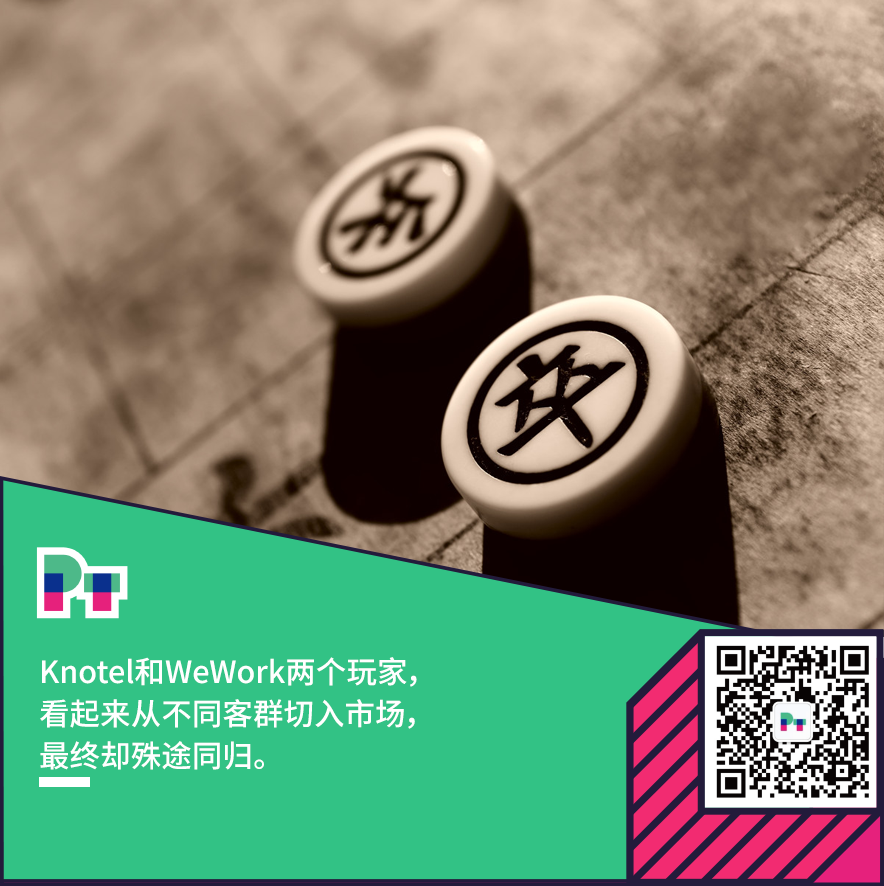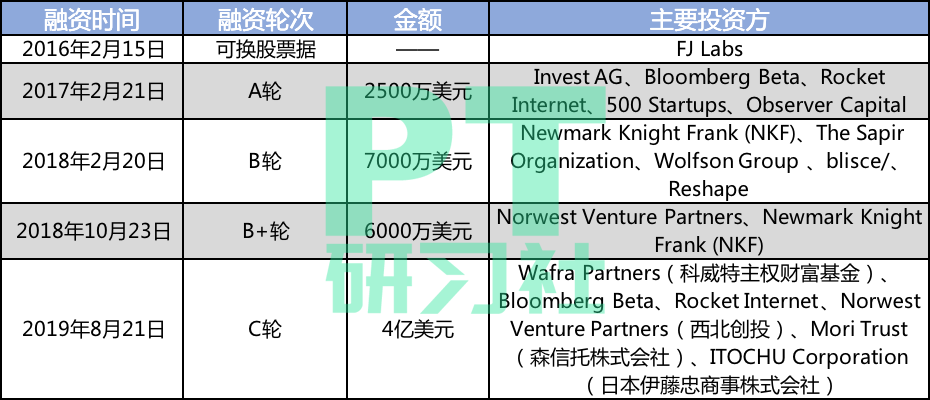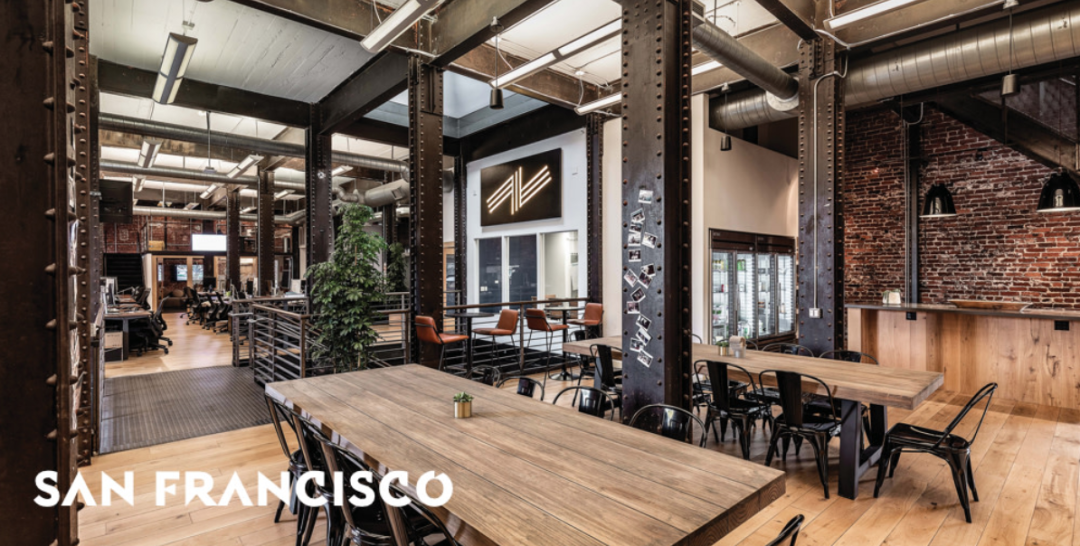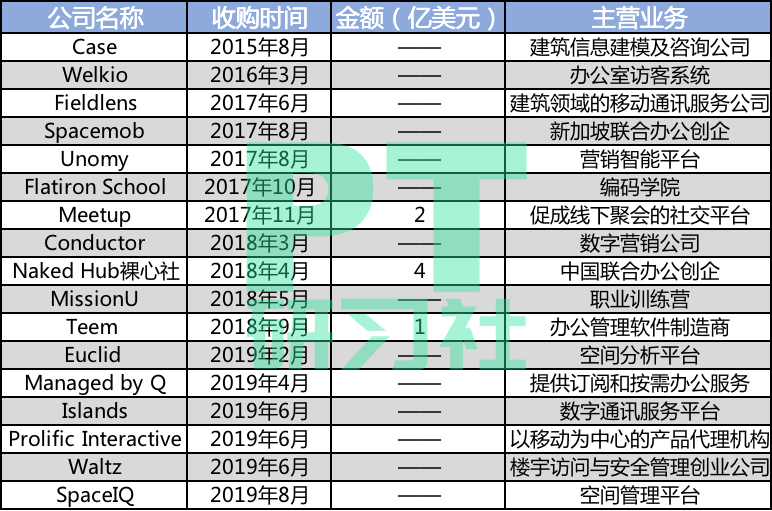Will Knotel be another WeWork in a parallel world?
Editor’s note: This article comes from the WeChat public account “PropTech Institute” (ID: cv_seal) .

Text | Ellie
Edit | Li Xiaoli
If you look back from the end, people today feel more emotional than insightful, just like the grassroots analysts who were on Wall Street during the 2008 economic crisis. If we put aside our emotions and try to observe from the perspective of bystanders, are we overly trapped in the negative emotions of WeWork and Softbank, while ignoring other possibilities on this track?
Knotel enters our field of vision with this observation perspective. We found that it only took 5 years to grow into a competitor of WeWork. Knotel did not follow the same trajectory. It started from another starting line, changed course midway, and finally intersected with WeWork.
Knotel recently attracted attention because of the company ’s 50% layoffs. At this time, it has begun to appear as a “competitor of WeWork”.
In the opening year of 2020, the entire co-working industry will usher in the most difficult time in history: in the birthplace of co-working space-the United States, WeWork, Convene, Industrious, The Wing have laid off news of layoffs. Knotel, an American flexible office service provider who had predicted a positive cash flow in 2020, was no exception, laying off 200 people, accounting for 50% of the company’s total staff. However, this number is less than a fraction of WeWork ’s global base of 12,500 people.
Regardless of the common layoffs that are taking place all over the world, how did Knotel spend 5 years to grow into a WeWork competitor is more worthy of research.

Knotel co-founder and CEO Amol Sarva
Knotel, which started by customizing the headquarters, Co-financed player of NO2, the nation ’s financing
Knotel was founded in New York in 2015. It initially focused on customizing corporate headquarters. It only started to work in co-working business in 2018.
Knotel currently has more than 200 stores with a management area of more than 5 million square feet. During the epidemic, in addition to the news of layoffs, Knote also plans to withdraw 20% of office space (about 1 million square feet) in advance, most of which are located in Manhattan.
At present, Knotel has a cumulative financing of US $ 560 million, making it the second largest co-working company in the United States to receive financing and the second largest co-working company in the United States.
Knotel’s high-light moments valued more than 1 billion US dollars, making it the second most valued office unicorn in the United States.
At first glance, Knotel is indeed qualified to be a competitor to WeWork, but if it were not for this big layoff, many people did not know its existence.
So how did Knotel spend 5 years to grow into a WeWork competitor?
Since its establishment in 2015, Knotel’s development has been relatively smooth and basically maintained the annual financing rhythm.

Knotel financing history
(Data source: Crunchbase official website)
(Drawing: PropTech Institute)
In 2016, Knotel obtained seed round financing by issuing convertible notes. The investor was FJ Labs, a New York investment agency that invested in Alibaba and Ant Financial.
From the perspective of its establishment, Knotel is 5 years behind WeWork. In 2016, most office space operators on the US market (such as WeWork) focused on providing shared office space for small companies, freelancers, and students.
Knotel ’s founders realized that although the company ’s organizational structure was flexible, their office space was not flexible enough.
At that time, many growing companies faced problems such as inflexible leases and the need to pay high deposits. According to the founder of Knotel, if you can provide tenants with more flexible leases, as well as one-stop baggage check-in services such as decoration, simple furniture, WiFi, and reception, then tenants may be willing to pay higher rents.
Subsequently, Knotel created the “Headquarters as a service” model to provide customized headquarters services for growing companies, but not all companies are eligible to enjoy this service. Knotel only provides services for 20-200 new economy companies. A startup team of 2-5 or a freelancer is not Knotel’s target audience. There was not enough intersection between Knotel and WeWork during this period.
In addition, Knotel also cleverly uses modular furniture and other components to enable it to quickly and easily design customized office spaces, thus leaving room for the growing needs of the companies that settle in.
In terms of operation mode, Knotel does not adopt the second landlord model, but implements a method of sharing profits with the landlord. In the early days of WeWork, apart from holding several buildings through the fund, its core tenement model was still the “second landlord.”

Knotel ’s office space in San Francisco
In February 2017, Knotel successfully obtained a second financing of US $ 25 million. Less than three years old, Knotel has more than 200,000 square feet of management area in New York City and San Francisco. At that time, Knotel had only 25 employees. WeWork in 2017 is already the star of the global sharing economy, the highlights blessed by Softbank are still shining, and the number of employees has long been thousands.
Knotel has not classified himself as a joint office until 2017.
Amol Sar, founder of Knotelva said in an interview with the media that the difference between Knotel and WeWork, The Yard, Breather and other joint offices is: “It ’s like comparing Squarespace and Amazon Web Services (AWS). You can create a very good for your jewelry store on Squarespace Great website, but Netflix runs on AWS. We operate for the company (headquarters), these companies have their own brand, culture and customer needs, from the warehouse to the TV studio. “Knotel positioning at that time is more backstage Support, not the front entrance.
Three years before starting the business, Knotel focused on providing customized headquarters services for enterprises. At that time, the customers served by Knotel included Microsoft, Starbucks, Knight Frank, Lastminute, Twilio, etc. Due to different target customers, Knotel has not yet become a direct competitor of WeWork.
The shift occurred in 2018, which was also a year of milestones for the co-working industry. Judging from the domestic joint process, in 2018, risk capital poured in wildly, the industry shuffled more and more fiercely, and the price war was ignited by WeWork’s global dumping strategy.
The fierce battle continued until the end of the year. The players who could not support the blood retreat in advance. The sequelae of the head player ’s aggressive nalou began to appear. At the end of 2018, the joint store closing tide began to take place. Some strong players began to seek transformation. Customizing offices for headquarters companies has become the direction of transformation for head players.
In this year, Knotel, which started from the headquarter enterprise customization, began to move towards co-working in the Red Sea. This year, investors behind Knotel began to join the real estate background.

Knotel ’s customized office for the Brazilian unicorn bank Nubank
From headquarter customization to joint office, Knotel revisited the old WeWork road
In February 2018, Knotel received $ 75 million in Series B financing. It is worth noting that investors in this round of financing include commercial real estate consulting company Newmark Knight Frank. In the same year, Knotel also began to get involved in the joint office business.
In the same year, WeWork also expanded its business scope. In August 2018, it officially launched the headquarters customized business “HQ by WeWork”, turning its attention to medium-sized companies with 10-250 employees.
WeWork’s move is on the one hand to retain medium-sized companies that have left the shared office after going through the stage of small companies, and on the other hand, to catch up with competitors who have already provided services to these customers.
According to the WeWork prospectus, as of the end of June 2019, 38% of WeWork ’s 527,000 members from corporate members of the Global Fortune 500 accounted for 38%.
At this time, China ’s joint players follow this transformation strategy, Krypton Space, Dream Plus, and Youke Factory have launched the headquarters customization business in late 2018 and early 2019.
In 2018, Knotel successively acquired the Berlin-based workspace operator Ahoy! Berlin and 42Floors.
Knotel acquired 42Floors to develop Baya, a blockchain-based listing service that can eliminate fraud and increase the transparency of the office leasing market. If 42Floors finds a benchmark in China, it is equivalent to the good rent and point rent who are committed to solving the asymmetric information of commercial offices.
With Knotel ’s strategy, WeWork will certainly not fall behind. As early as 2015, it has acquired nearly 20 space management information technology companies.

WeWork investment acquisition list
(data source, drawing: PropTech Institute)



In February 2018, Knotel received $ 75 million in Series B financing. It is worth noting that investors in this round of financing include commercial real estate consulting company Newmark Knight Frank. In the same year, Knotel also began to get involved in the joint office business.
In the same year, WeWork also expanded its business scope. In August 2018, it officially launched the headquarters customized business “HQ by WeWork”, turning its attention to medium-sized companies with 10-250 employees.
WeWork’s move is on the one hand to retain medium-sized companies that have left the shared office after going through the stage of small companies, and on the other hand, to catch up with competitors who have already provided services to these customers.
According to the WeWork prospectus, as of the end of June 2019, 38% of WeWork ’s 527,000 members from corporate members of the Global Fortune 500 accounted for 38%.
At this time, China ’s joint players follow this transformation strategy, Krypton Space, Dream Plus, and Youke Factory have launched the headquarters customization business in late 2018 and early 2019.
In 2018, Knotel successively acquired the Berlin-based workspace operator Ahoy! Berlin and 42Floors.
Knotel acquired 42Floors to develop Baya, a blockchain-based listing service that can eliminate fraud and increase the transparency of the office leasing market. If 42Floors finds a benchmark in China, it is equivalent to the good rent and point rent who are committed to solving the asymmetric information of commercial offices.
With Knotel ’s strategy, WeWork will certainly not fall behind. As early as 2015, it has acquired nearly 20 space management information technology companies.

WeWork investment acquisition list
(data source, drawing: PropTech Institute)